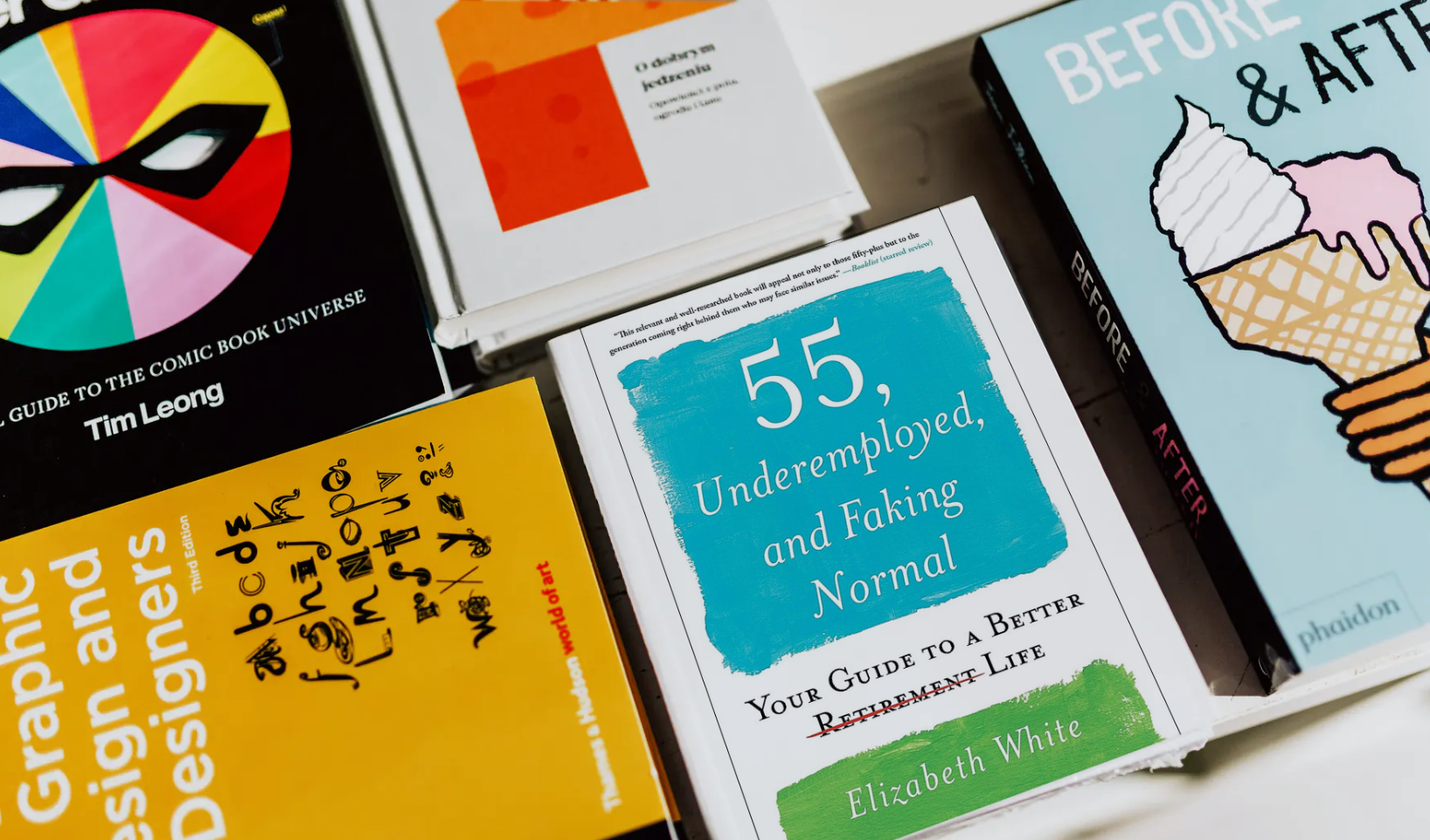Review: ‘55, Underemployed, and Faking Normal is a wake-up call
“The truth is, if you’re a boomer-age American, you’ve spent YOUR last three or more decades dealing with flat or falling wages, disappearing pensions, and steeply rising costs in housing, health care, and education.”
Elizabeth White grew up middle-class and well-traveled. The daughter of a career Army officer, she attended public schools and went on to Oberlin College, after which she got a master’s degree from the Johns Hopkins University School of Advanced International Studies. She found a job at the World Bank and bought her first home.
It was a time, she writes, when “we boomers were still the youngest people in the room.” Back then, she and others in her situation assumed they’d one day enjoy a comfortable retirement: the stereotypical sun-drenched relaxation years after decades of hard work.
But for White and a significant number of her generation, things have not panned out that way. After years in her profession, White took a foray into entrepreneurism. That kept her out of the job market for a few years and re-entry proved difficult; then came the recession in 2008. Suddenly, the top-shelf education, job experience and network she had accrued in early adulthood no longer translated into job offers.
In 2015, she wrote an essay published on a PBS website called “You Know Her.” The story cataloged the losses, sacrifices and often-hidden indignities of a woman sliding out of what was once middle-class security. “Homeless women used to be invisible to her,” the essay ends, “but she appraises them now with curious eyes, wondering if their stories started like hers.”
White’s essay provoked a storm of responses, among them emails from others “feeling shell-shocked, alone, and scared about the future.” And so she began corresponding with some of them and researching the plight of fellow younger baby boomers.
The result is “55, Underemployed, and Faking Normal,” a book that is somehow simultaneously a terrifying wake-up call and a heartening, idea-filled guide to navigating the new realities so many of us face or will face.
At a time when President Trump touts a booming economy with record low unemployment figures, the truth is that many workers are underemployed — struggling to piece together a series of gig jobs and contract work, no benefits in sight — while others aren’t reflected in the numbers because they have simply stopped looking, aged out of a job market that values youth over experience.
The reality is staggering. As the population ages — about 10,000 people a day turn 65, White reports — we increasingly see this group in precarious financial situations. More than a third of Americans have no retirement savings at all.
According to one Federal Reserve study cited in the book, of Americans ages 56 to 61 who do have savings, the median value is just $25,000. White calls them pre-retirees.
The average monthly Social Security benefit is $1,404. You do the math, and it’ll put you right around the poverty line every single time. White is not concerned with blame or shame — “you’re not here because you’re a deadbeat,” she writes. “The truth is, if you’re a boomer-age American, you’ve spent your last three or more decades dealing with flat or falling wages, disappearing pensions, and steeply rising costs in housing, health care, and education.” Despite her focus on baby boomers, the author points out, those of us in Generation X are facing the same sorry situation — 2020 is the year the oldest Gen-Xers start turning 55.
Despite White’s policy savvy, this is not a book that attempts to provide wonkish solutions to the problem she diagnoses. Instead, she focuses on how individuals can work to adjust themselves to an unsettling new reality.
First, she stresses, it’s important to understand that “we’re not talking about some abstract group. We’re talking about ourselves and about people we know: our sisters, our mothers, and our friends.” The numbers are real, dire and coming our way. But, White writes, “I see a silver lining in the new normal.” It might not be easy to change the way we live, she says. “But there are alternative paths. Some of our contemporaries in our same boat are making a go of it, and there’s a lot that we can learn from their experience.”
Some of White’s recommendations might be difficult to swallow: taking in roommates in middle age or going on food stamps. She mentions relocating to Mexico, with its lower housing costs and expat-friendly healthcare system. Whatever changes one makes, White advises readers to find each other, form what she dubs “Resilience Circles,” gatherings where people can talk freely about the challenges they face and gain strength in fellowship.
Here, along with the ample stories she gathers from real people, lies the book’s greatest strength. Whether we’re looking at the problem on a global, national or household scale, she writes, “we’ve got to start talking about it if we want to find solutions.”
“The truth is, if you’re a boomer-age American, you’ve spent YOUR last three or more decades dealing with flat or falling wages, disappearing pensions, and steeply rising costs in housing, health care, and education.” [36]
